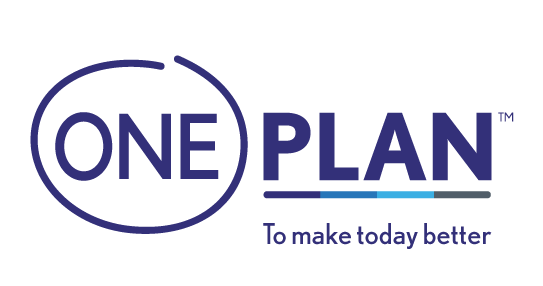The 17th of May is World Hypertension Day, so we’re sharing everything you need to know about high blood pressure and hypertensive heart disease
Any health insurance company in South Africa will tell you that hypertensive heart disease is one of our biggest health risks today. Hypertensive heart disease is commonly associated with high blood pressure but is also associated with many other disorders and diseases of the heart, which makes it far riskier than most people realise.
That’s why Oneplan Health Insurance is intent on educating the South African public about the risks of neglecting their heart health. After all, health insurance can only help you so much if you develop a lifestyle related heart problem. Prevention is better than cure, so inform yourself and keep your heart happy!
Hypertensive heart disease is the most common cause of death related to high blood pressure. It encompasses a range of heart problems including heart failure and thickening of the heart muscle (ventricular hypertrophy). Because of their prevalence, conditions related to hypertension are an area of particular interest for doctors as well as many a health insurance company.
High Blood Pressure Symptoms
Most people with high blood pressure, also known as hypertension, don’t feel any symptoms, although people with very high blood pressure (usually 180/120 or higher) can experience symptoms. Signs of high blood pressure include:
- Severe headaches
- Chest pain
- Dizziness
- Difficulty breathing
- Nausea
- Vomiting
- Blurred vision or other vision changes
- Anxiety
- Confusion
- Buzzing in the ears
- Nosebleeds
- Abnormal heart rhythm
If you experience any of these symptoms, you should consult your healthcare practitioner to get the treatment you need. Treating high blood pressure is vital to avoid complications such as heart attack and stroke, as well as hypertensive heart disease and heart failure.
What is Heart Failure?
This term does not necessarily mean that the heart has stopped completely but refers to the point where a heart’s pumping power is so weak that it cannot support the needs of the body adequately. It can also mean that the heart muscle has become less elastic for some reason, also causing pumping problems to occur.
In order to compensate for this reduction in power, the muscle walls of the heart stretch in an effort to hold more blood. Over time, this results in thinning and weakening of the heart walls.
Symptoms of heart failure include:
- Shortness of breath
- Fluid retention (swelling) in the lower body, legs, and abdomen
- Difficulty lying flat when in bed
- Nausea
- Fatigue
- Increased need for night-time urination
How do Doctors Diagnose Hypertensive Heart Disease?
There are two types of hypertensive heart disease, which are:
Narrowing of the arteries
This is known as Coronary Heart Disease (CHD), which is when high blood pressure causes the blood vessels that transport blood to your heart muscle to narrow. This prevents or slows down blood flow to the heart.
When this happens, it can put you at risk of getting a blood clot in one of these narrowed arteries, which can lead to heart attack (when blood flow is cut off to your heart).
Thickening and enlargement of the heart
Also known as Left Ventricular Hypertrophy (LVH), this condition causes the heart muscles to thicken and grow, which changes the way your heart functions (specifically in the left ventricle). LVH happens as a result of the heart having to work harder to pump blood around your body.
It’s important to note that these two types of hypertensive heart disease can trigger one another. When you have CHD, your heart must work harder. If LVH enlarges your heart, it can compress the coronary arteries.
Certain tell-tale signs will indicate hypertensive heart disease during your check-up. These include:
- High blood pressure
- Irregular pulse and unusually large heart
- Fluid in lungs and swollen legs or feet
- Your doctor may also elect to perform more specific tests, such as an electrocardiogram or cardiac stress test.
Hypertensive Heart Disease Treatment and Prevention
Since hypertension is caused by high blood pressure, the treatment for the disorder will centre on treatment of the causal condition. High blood pressure is treated with a variety of medications, including diuretics (to relieve fluid retention), beta-blockers, ACE inhibitors and vasodilators (to assist in opening up constricted blood vessels).
It is also imperative, however, that the patient takes the treatment into their own hands to an extent as well – lifestyle choices can cause high blood pressure, and they can also help prevent and relieve it. Your doctor may suggest:
Diet
If you have high blood pressure, it is immediately recommended that you severely restrict your intake of sodium (salt). It is also helpful to eat a nutritious diet that includes fruits, vegetables, potassium, protein, and fibre and avoid foods high in added sugar and saturated fat.
Tobacco and Alcohol
Two major contributors to high blood pressure. It is extremely wise to stop smoking and limit alcohol intake to maintain heart health and avoid further damage.
Weight Management
Maintaining a modest weight is key to looking after your heart health, as obesity and overweight increase the risk of high blood pressure. It is also important to include 30 minutes of moderate activity in your day such as going for a vigorous walk.
Sleep
Ensuring adequate quality sleep can help improve blood vessel and heart health. It is recommended that you get at least 7 hours of sleep per night to be truly rested.
Above all, the best way to manage your heart health is to get diagnosed and treated early on, which is easy when you sign up for Oneplan Health Insurance. We make sure you can get access to private medical facilities AND keep your favourite doctor, all at an affordable monthly premium.
For more information, take a look at our range of comprehensive health insurance plans.
Your Health Insurance Family,
Oneplan




